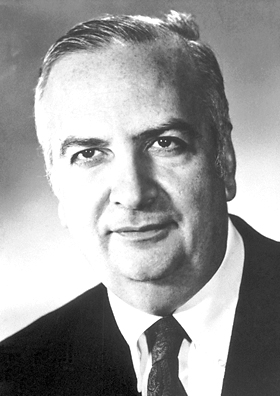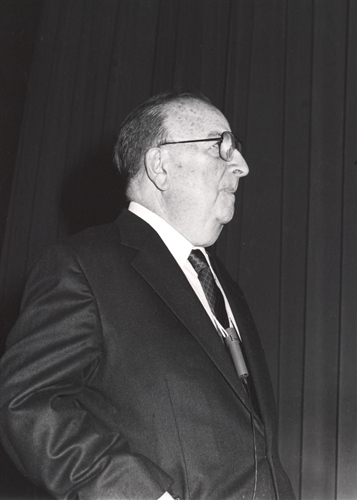<Back to Index>
- Immunologist Baruj Benacerraf, 1920
- Poet Guillermo Valencia Castillo, 1873
- Governor of the Spanish Netherlands Fernando Álvarez de Toledo, 3rd Duke of Alba, 1507
PAGE SPONSOR



Baruj Benacerraf (born 29 October 1920) is a Venezuelan American immunologist, who shared the 1980 Nobel Prize in Physiology or Medicine for the "discovery of the major histocompatibility complex genes which encode cell surface molecules important for the immune system's distinction between self and non-self". His colleagues and shared recipients were Jean Dausset and George Davis Snell. His brother is well known philosopher Paul Benacerraf.
Born in Caracas, his parents were Sephardic Jews: his father was born in the Moroccan city of Tetuan and his mother in Algeria. Benacerraf moved to Paris from Venezuela with his family in 1925. After going back to Venezuela, he emigrated to the U.S. in 1940. He earned his B.S. at Columbia University School of General Studies. He then went on to attain the degree of Doctor of Medicine from the Medical College of Virginia, the only school to which he was accepted.
After his medical internship and US Army service (1945 – 48), and working at the military hospital of Nancy, he became a researcher at Columbia University College of Physicians and Surgeons (1948 – 50). He performed research in Paris (1950 – 56), relocated to New York University (1956 – 68), moved to the National Institutes of Health (1968 – 70), then joined Harvard University (1970 – 91), concurrently serving the Dana - Farber Cancer Institute, Boston (1980). He began studies of allergies in 1948, and discovered the Ir (immune response) genes that govern transplant rejection (1960s).
He was elected a Fellow of the American Academy of Arts and Sciences in 1971. In 1990, Benacerraf also received the National Medal of Science for his contributions to the world of medicine.